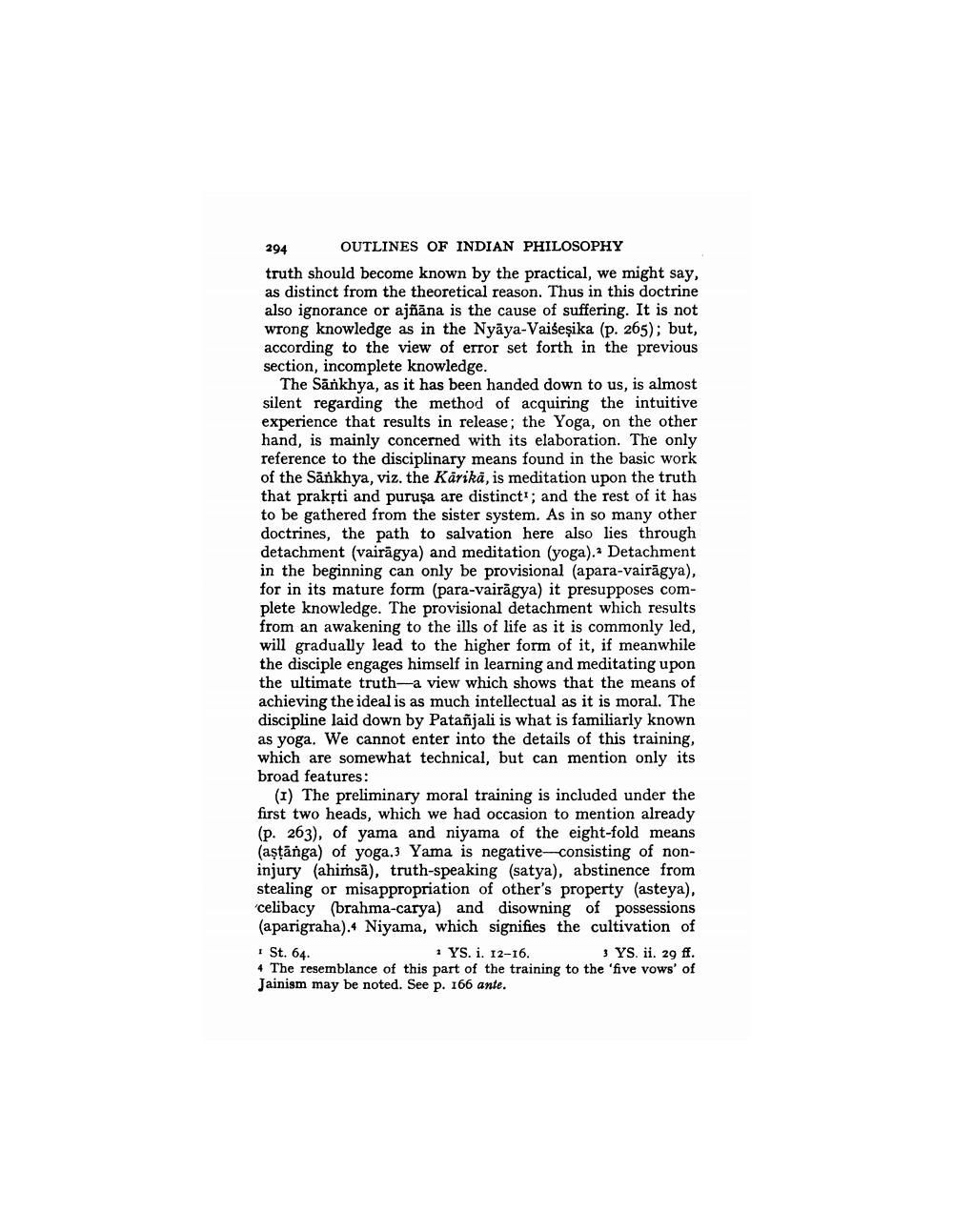________________
294 OUTLINES OF INDIAN PHILOSOPHY truth should become known by the practical, we might say, as distinct from the theoretical reason. Thus in this doctrine also ignorance or ajñāna is the cause of suffering. It is not wrong knowledge as in the Nyāya-Vaišeşika (p. 265); but, according to the view of error set forth in the previous section, incomplete knowledge.
The Sankhya, as it has been handed down to us, is almost silent regarding the method of acquiring the intuitive experience that results in release; the Yoga, on the other hand, is mainly concerned with its elaboration. The only reference to the disciplinary means found in the basic work of the Sankhya, viz. the Karikā, is meditation upon the truth that praksti and puruşa are distinct"; and the rest of it has to be gathered from the sister system. As in so many other doctrines, the path to salvation here also lies through detachment (vairāgya) and meditation (yoga).- Detachment in the beginning can only be provisional (apara-vairāgya), for in its mature form (para-vairagya) it presupposes complete knowledge. The provisional detachment which results from an awakening to the ills of life as it is commonly led, will gradually lead to the higher form of it, if meanwhile the disciple engages himself in learning and meditating upon the ultimate truth-a view which shows that the means of achieving the ideal is as much intellectual as it is moral. The discipline laid down by Patañjali is what is familiarly known as yoga. We cannot enter into the details of this training, which are somewhat technical, but can mention only its broad features:
(1) The preliminary moral training is included under the first two heads, which we had occasion to mention already (p. 263), of yama and niyama of the eight-fold means (astānga) of yoga.3 Yama is negative-consisting of noninjury (ahimsā), truth-speaking (satya), abstinence from stealing or misappropriation of other's property (asteya), celibacy (brahma-carya) and disowning of possessions (aparigraha). Niyama, which signifies the cultivation of · St. 64.
YS. i. 12-16.
YS. ii. 29 ff. 4 The resemblance of this part of the training to the 'five vows' of Jainism may be noted. See p. 166 ante.




